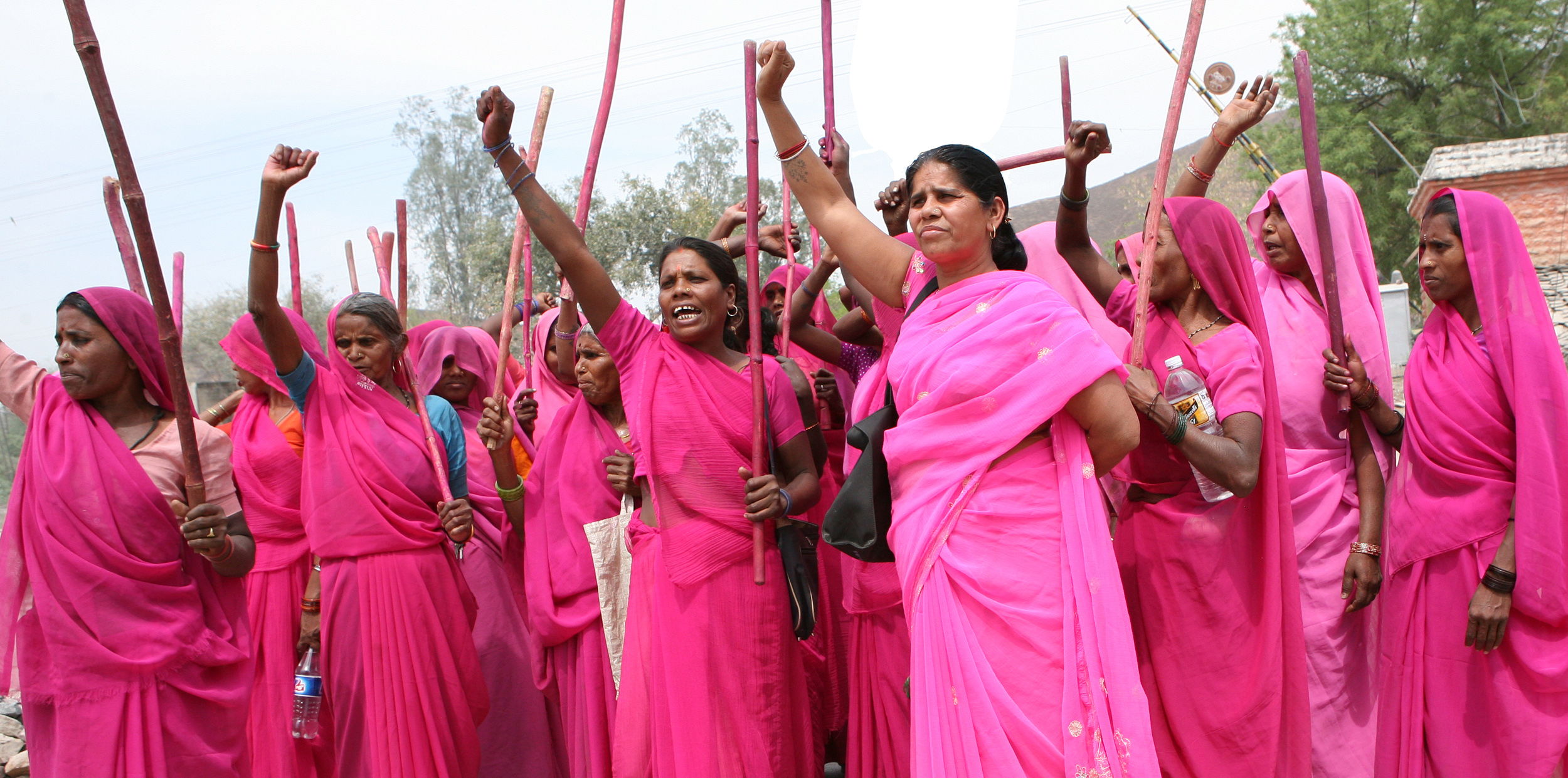In 2008, Vice News reported on the burgeoning Gulabi Gang or “Pink Sari Movement” started by a woman in the particularly impoverished Uttar Pradesh region of India. The group was started in 2006 by then 45 year-old Sampat Pal Devi, who, upon witnessing a man brutally beating his wife, attempted to intervene, and was seriously beaten herself. She returned the next day with a bamboo stick to exact her revenge upon the man and began a movement, teaching women to defend themselves using the traditional lathi fighting sticks.
That was 7 years ago. The Gulabi Gang now counts 400,000 women as members. Known for their bright pink saris and bamboo sticks, the women of the Gulabi Gang work primarily on a village-by-village, case-by-case basis, advocating for the rights of abused women, exploited families, and the underserved masses. These women are now members of a larger movement for women’s rights in India, including, but not limited to, stronger punitive action against beatings, rape, voyeurism, acid attacks and stalking.
Speaking from her experiences abroad in India last semester, Emma Cummings-Kreuger ‘16 explained, “Women empowerment is really on the rise in India. Many groups of village women are even forming self-help groups to help one another without interference from their husbands. These groups represent a major shift in historical gender roles.”
In a speech made on August 15th, Indian Independence Day, Prime Minister Narendra Modi implored parents to teach their boys ‘right from wrong’, a statement taken by most in India as an empty acknowledgement of the spate of violent rapes in India over the summer. His speech was followed shortly by a statement from Bharatiya Janata Party member Babulal Gaur, that violence against women, particularly rape, ‘is sometimes right and sometimes wrong’ essentially nullifying the message delivered by Modi.
It is, of course, overly reductive to equate the Prime Minister’s stance on women’s rights to the opinions of individual party members. Except that since the August 15th speech there have been, according to statistics from the Times of India, over 14,000 rapes in India. Thus, while one would be incorrect in assuming that Modi himself believes violence against women to be only partly wrong, it would also be incorrect to believe that his administration has made any great strides in the fight for women’s rights.
Instead, strides are being made by organizations like the Gulabi Gang and the various activist groups behind Womanifesto, a six-point plan introduced to raise women’s rights on the political agendas of PM candidates this past summer.
The six points include pressure to make education more available to women, increase government and legislative accountability, open up political positions for women, reduce police corruption and subsequently streamline the justice system, and create economic opportunity and equality for women. Modi still hasn’t signed it.
Get real time updates directly on you device, subscribe now.
Next Post



